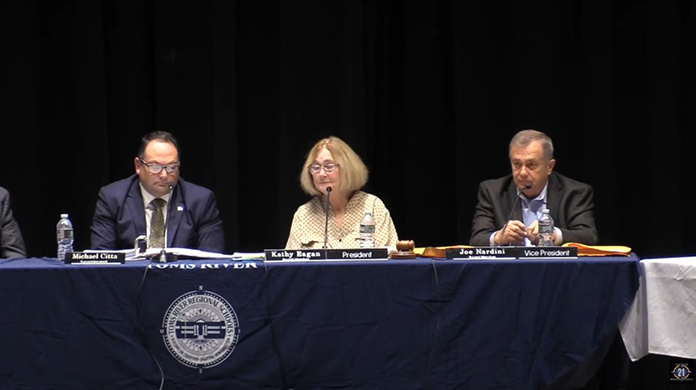
TOMS RIVER – As the school buildings have been showing their age, officials have been determining what they should prioritize in terms of repair.
Mark Wagner, who serves as the district’s capital projects manager, said at a recent Board of Education committee meeting that there are a lot of high end items that are in need of repair or replacement.
“We still have a number of schools with boilers over 30 years old,” he told the Board and administration. A number of windows need to be replaced, and most of the roofs are beyond their expected lifespan.
He recommended the district perform a facility condition assessment. This would be an appraisal of all such items to see what needs to be done with all of them.
Some of the assessment can be done in-house, he said. However, if a neutral third party said something needed to be done, it could lend credence when asking for a state agency to review the project.
Business Administrator William Doering said that they would discuss this internally to see what can be assessed in-house. Proposals would have to be sought for the rest.
Repairs and maintenance are done on a regular basis in every school district, and Toms River is no different. However, in budget crunches, capital projects are sometimes postponed.

Toms River is saddled with the S-2 funding formula which has drastically cut state aid year over year. This has resulted in a loss of many positions as well as changing how officials view all expenditures.
That’s not to say that the district has not been doing any repair. Work is continually done throughout the year.
Additionally, in 2019, voters passed a referendum to raise $147,148,269 for school repairs. Of this, the state paid for about a third, or $47,281,593.
Every committee meeting gives and update on these projects. In fact, immediately after the 2019 vote, a board member told The Toms River Times that the projects won’t be started all at once. This means they wouldn’t need to bond it all at once. Doering had also said at the time that the goal was to prioritize the projects. They would be done in increments, and the district would have flexibility to take money out when bond rates are lower. Some projects could be bonded after older debt is paid off.
Additionally, there were $17.8 million in energy projects. What happened was that the district bonded for the $17.8 million, and the projects being done are saving $1 million annually in energy costs, so it will be paid off without raising taxes.






